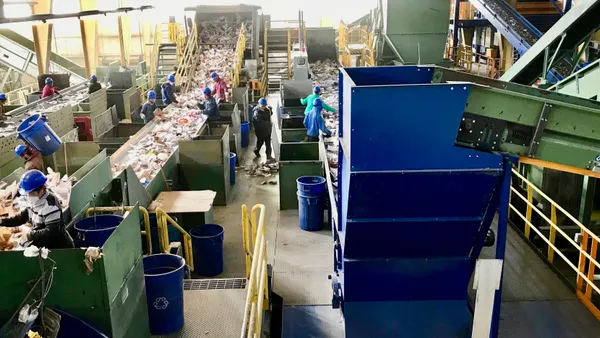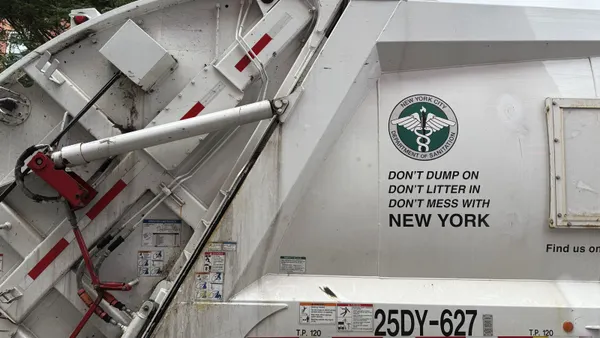UPDATE: Sept. 3, 2019: A bill (AB 161) requiring businesses to print paper receipts only at the customer's request has been rejected by the California State Senate after stalling in the Senate Appropriations Committee, as reported by the Los Angeles Times. Sponsored by Assemblyman Phil Ting, D-San Francisco, the proposed legislation also sought to ban bisephenol A (BPA) and bisphenol S (BPS) chemicals in paper receipts (restrictions of which have already been enacted in Connecticut and the European Union) as well as printouts of "items nonessential to the transaction" – including coupons and advertisements.
The bill, which initially would have required businesses to provide digital receipts unless otherwise requested, was significantly revised following strong opposition from the paper industry and trade groups.
"We're pleased that legislators recognized paper receipts are not only preferred by the majority of consumers, but are also safe for consumers and employees," said Jessica Mause of the opposition group Keep the Receipt, which was funded by the American Forest and Paper Association.
Ting indicated that he might reintroduce the bill next year, according to the LA Times.
"We are very disappointed," he said. "We think this bill made a lot of sense and had clear environmental impacts."
Dive Brief:
- The California State Assembly proposed a bill this week (AB 161) that would ban paper receipts unless requested by a customer. Inspired by Green America’s "Skip the Slip" campaign, the bill would force establishments, including small businesses, to send electronic receipts by January 1, 2022, the Sacramento Bee reports.
- Similar to other product bans, the state would warn noncompliant businesses twice before fining them $25 for each subsequent violation – up to $300 per year. A Republican assemblyman raised concerns about the ban's effect on small and rural businesses, questioning whether it would really save that much paper, according to the New York Times.
- In addition to not being recyclable, receipt paper typically contains BPA or BPS – chemicals that allow for ink-free printing, CNBC reported. A spokesperson for the California Retail Association told CNBC that many stores already offer e-receipts, but that smaller and medium-sized stores could face challenges putting the bill into action.
Dive Insight:
Bill proponents agree that many retailers have already taken steps to curb environmental impacts by offering digital receipts. Dangling fines, however, could encourage small businesses with older systems to speed up the transition.
That might be true for small businesses in other retail sectors, such as clothing boutiques or coffee shops, where owners have turned to digitally native companies for inventory and cash register management. But traditional grocers and convenience store chains carry many more items than other retailers and often have the same systems chain-wide, making the switch a potentially expensive and tedious task. Fast-casual restaurants, where ticket averages are typically lower, can more readily adopt the technology – Square, for instance, offers quick and easy email receipts, remembering the customer's email once attached to a credit card at point-of-purchase.
Consumers might also hesitate to accept digital receipts for privacy reasons – or simply because they don't want their inbox flooded with emails. The switch could also prove untenable for older consumers or those who lack access to email. Around 11% of Americans don't use the Internet, according to Pew Research Center, and rural Americans are more than twice as likely as city and suburban residents to never go online. The adoption rate for smartphones, however, has surpassed 75%.
Green America, an advocacy group pushing retailers to "skip the slip," acknowledges these potential setbacks. To accommodate those customers, it recommends that retailers embrace chemical-free paper, as Lidl has done on the East Coast. Whole Foods still uses paper with BPA and BPS in it, per Green America's list, but now offers digital receipts. Target, Walmart, Walgreens and CVS also have also yet to made the switch to clean paper.
Infamous for its feet-long receipts packed with coupons, CVS started offering paperless receipts in 2016; however, customers must have an ExtraCare card in order to receive them. Green America contends that the company hasn't done enough to promote the service, which, according to CVS's 2017 company report, is used by 4.5 million – approximately 7% – of its ExtraCare members. The company saved $200,000 through this initiative, the report noted.
Receipts generate 686 million pounds of waste and 12 billion pounds of carbon dioxide every year, according to Green America and text included in the legislation. Perhaps the first step should be convincing major retailers to convert to chemical-free paper. But even more appealing to businesses could be the savings: Receipt paper costs about 40 cents for a 150-foot roll and $3 per ribbon, according to Digital Check.
Correction: A previous version of this story incorrectly stated the materials in Trader Joe's receipts, due to an error in the original report. Trader Joe's removed phenols from its receipt paper in 2017.









